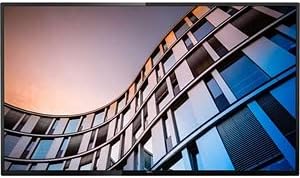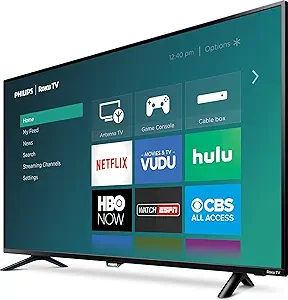TCL and Philips each offer a diverse range of TVs catering to different preferences and budgets, making them prominent choices in the TV market. In this review, we’ll explore their series lineup and compare their strengths to provide a comprehensive view.
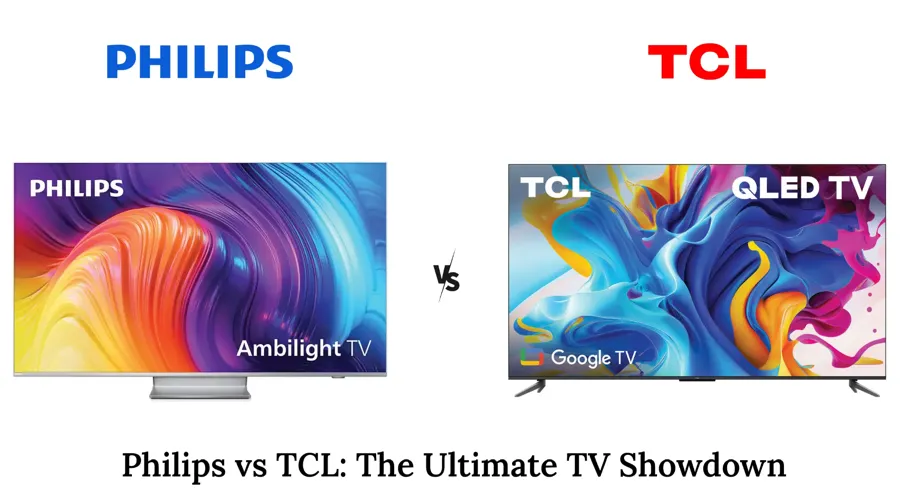
Lineups
When comparing TCL and Philips TV lineups, each series aligns with specific features and target audiences:
- TCL QM8 vs. Philips 7900 Series: Both flagship models, TCL excels with QD-Mini LED technology for peak brightness, while Philips enhances immersion with QLED and Ambilight.
- TCL QM7 vs. Philips 7000/7600 Series: Mid-range options with excellent brightness and HDR support. Philips offers gaming-specific enhancements in the 7600 Series.
- TCL QM6 vs. Philips 6600/6500 Series: Entry-level advanced models balancing solid picture quality and affordability.
- TCL S5 vs. Philips 6000 Series: Budget-friendly 4K TVs for casual viewing.
- TCL S3/S2 vs. Philips 4000 Series: Basic models designed for HD and Full HD viewing, ideal for secondary rooms or tight budgets.
By comparing the product offerings of these two brands, we’ll examine how each series performs in key aspects such as picture quality, design, sound, and smart features. Whether you’re looking for cutting-edge technology or reliable affordability, this review aims to help you make the best choice.
Picture Quality
Top-Rated Picture Quality Brands
TCL
TCL’s models prioritize brightness and advanced LED technologies, while Philips excels in contrast and immersive visuals.
TCL’s flagship QM8 leads with its QD-Mini LED technology, offering up to 5,000 dimming zones and peak brightness of 6,500 nits, ideal for vibrant and detailed images. The QM7 follows closely, with up to 1,500 dimming zones and 2,400 nits of brightness, making it an excellent option for most lighting conditions. The QM6 serves as an entry-level Mini LED model, providing better contrast and colors than standard LEDs. TCL’s S-Series (S5, S3, and S2) uses conventional LED panels, with the S5 supporting 4K resolution and the S3 and S2 targeting Full HD and HD Ready audiences.

PHILIPS
Philips’ 7900 Series employs QLED technology, ensuring vivid colors and 4K resolution for an enhanced viewing experience. The 7000 Series offers mid-range performance with 4K and HDR10 support. Budget models like the 6600, 6500, 6400, and 6000 Series deliver varying levels of Full HD and 4K, catering to casual viewers. The 7600 Gaming Series adds gamer-focused features such as low input lag and high refresh rates, while the 4000 Series focuses on basic functionality.
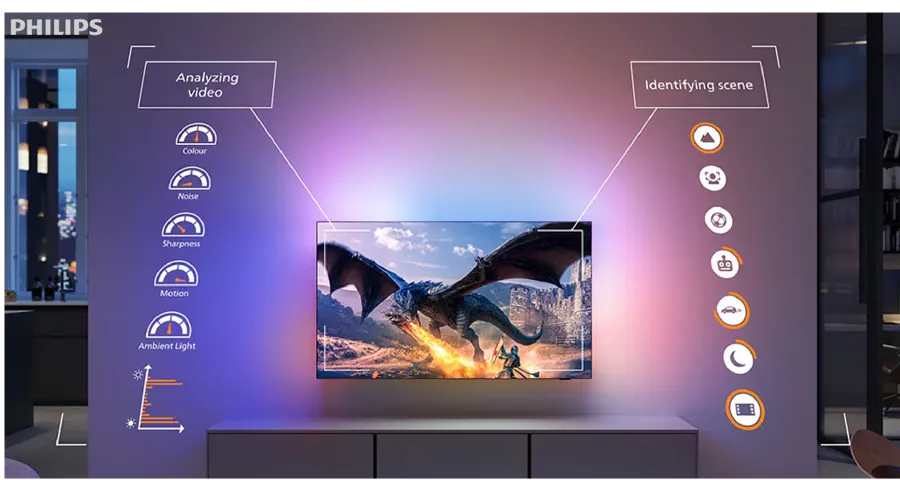
Choose TCL if brightness and vibrant colors are priorities, especially in well-lit spaces. Opt for Philips if you prefer deep contrast and an immersive Ambilight experience, ideal for darker viewing environments.
Design
PHILIPS
Design is a standout factor for Philips, particularly with its Ambilight feature, which projects colors onto surrounding walls for an immersive experience. The 7900 and 7000 Series showcase slim profiles and modern aesthetics, while budget models like the 6000 and 4000 Series prioritize practicality over style.
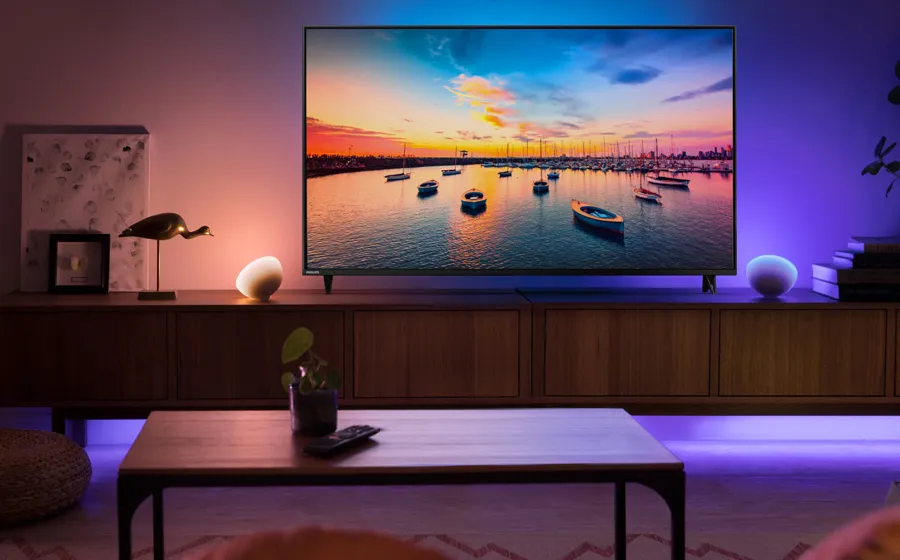
TCL
TCL’s QM8 and QM7 adopt sleek, minimalist designs with ultra-thin bezels and adjustable stands. The NXTFrame models offer customizable frames for seamless integration into modern homes. The S-Series, while simpler, maintains a functional and space-saving design suited for budget setups.
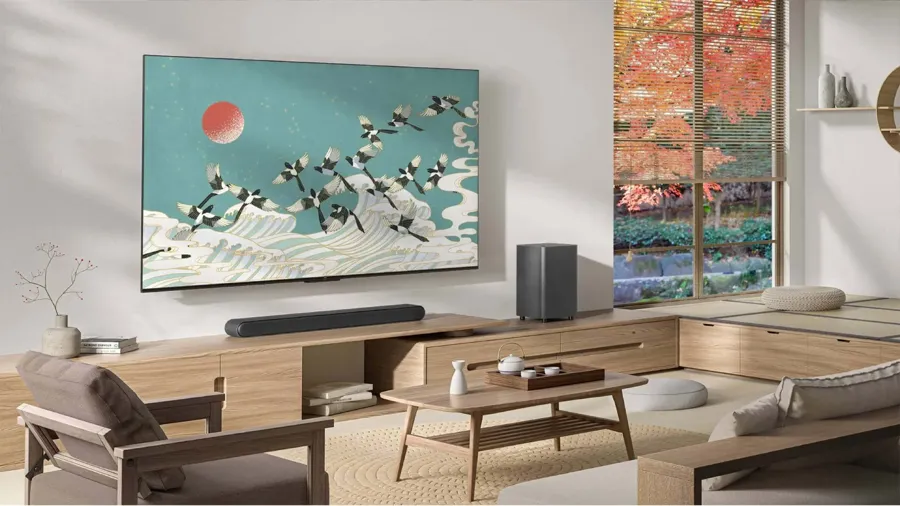
Both brands pay attention to aesthetic details, with Philips focusing on design innovation and TCL offering flexibility in placement. Philips’ Ambilight technology enhances not just the TV but the ambiance of the entire room, making it a unique decorative piece. TCL’s adjustable stand on higher-end models provides compatibility with a variety of setups, ensuring practicality.
If unique and immersive designs matter, Philips with Ambilight technology is the better choice. For modern, minimalist setups, TCL provides versatile and stylish options that integrate seamlessly into various interiors.
Sound
Top-Rated Sound Quality Brands
TCL
TCL’s QM8 sets a high standard with built-in Onkyo up-firing speakers and Dolby Atmos support, delivering immersive, multi-dimensional audio. However, the S-Series models are equipped with basic sound systems, suitable for casual viewing but benefiting from external soundbars.
PHILIPS
Philips’ premium models, such as the 7900 Series, integrate advanced Dolby Atmos technology, and the 7600 Gaming Series offers strong sound output. Lower-tier models maintain functional audio performance, sufficient for standard content consumption.
Philips goes a step further with some models featuring built-in audio systems by renowned brands like Bowers & Wilkins, offering a cinema-like sound experience. TCL’s sound performance, while solid in higher-end models, often requires external enhancements for a similar experience.
For advanced audio and built-in sound systems, Philips is the preferred choice. TCL excels in higher-end models like the QM8 With Onkyo buit-in speakers , but soundbars may be needed for its budget options to achieve comparable quality.
Quality & Performance
TCL
TCL excels in innovation and performance, with its QM8 and QM7 leading the way in dimming technology and AI-powered processors for real-time optimization. The S3 and S2 provide reliable performance for budget-conscious consumers.
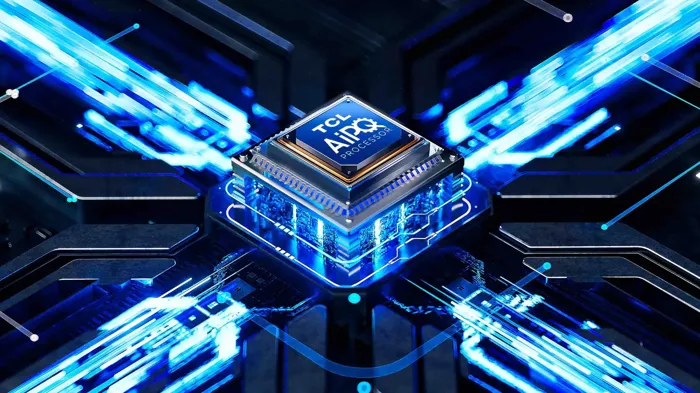
PHILIPS
Philips emphasizes durability and premium quality, particularly in the 7900 and 7600 Series, leveraging advanced P5 AI processing for smooth motion and vivid visuals. Budget models focus on dependable performance for everyday use. Philips’ attention to build quality ensures long-lasting products that maintain performance over time.

TCL prioritizes cutting-edge features, such as Game Accelerator 240 for gaming, ensuring smooth transitions and low latency for gamers. Philips balances technology with reliability, making it a trusted choice for users seeking consistent quality.
For cutting-edge performance and technology, TCL is the better choice, especially for tech-savvy users. For long-term durability and refined quality, Philips offers a solid advantage, making it a great option for those prioritizing reliability.
Smart TV & Connectivity
TCL
TCL uses Google TV across most models, delivering seamless integration with streaming apps, personalized recommendations, and voice control. The QM8 also supports Wi-Fi 6 for faster and more stable connectivity.
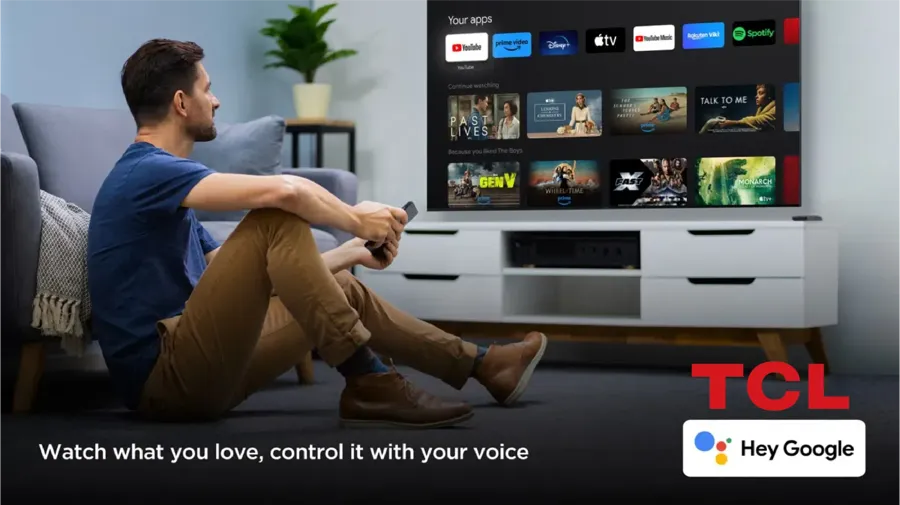
Philips
Philips combines Google TV with its proprietary Titan OS in some models, offering tailored smart experiences. Ambilight technology further enhances interactivity, creating a unique smart TV experience. Philips’ smart TV interface also integrates well with smart home ecosystems, providing more comprehensive controls.
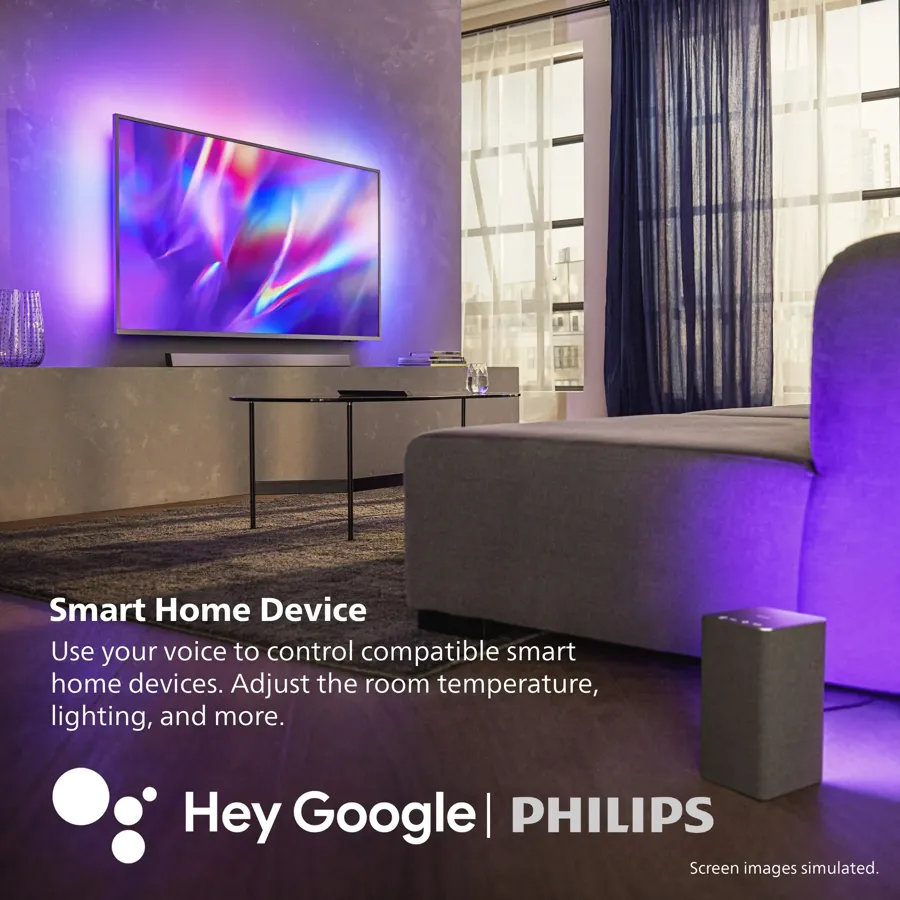
TCL focuses on user-friendly interfaces and fast processing for smooth navigation, while Philips’ Titan OS adds a layer of customization. Both brands offer voice assistant integration, making it easy to control TV functions hands-free.
Choose TCL for streamlined smart TV functionality and faster connectivity. Opt for Philips if Ambilight-enhanced features and seamless smart home integration are appealing.
Brightness
TCL
Brightness is a key differentiator for TCL, with the QM8 reaching up to 6,500 nits, ideal for bright environments. The QM7’s 2,400 nits also deliver impressive performance.
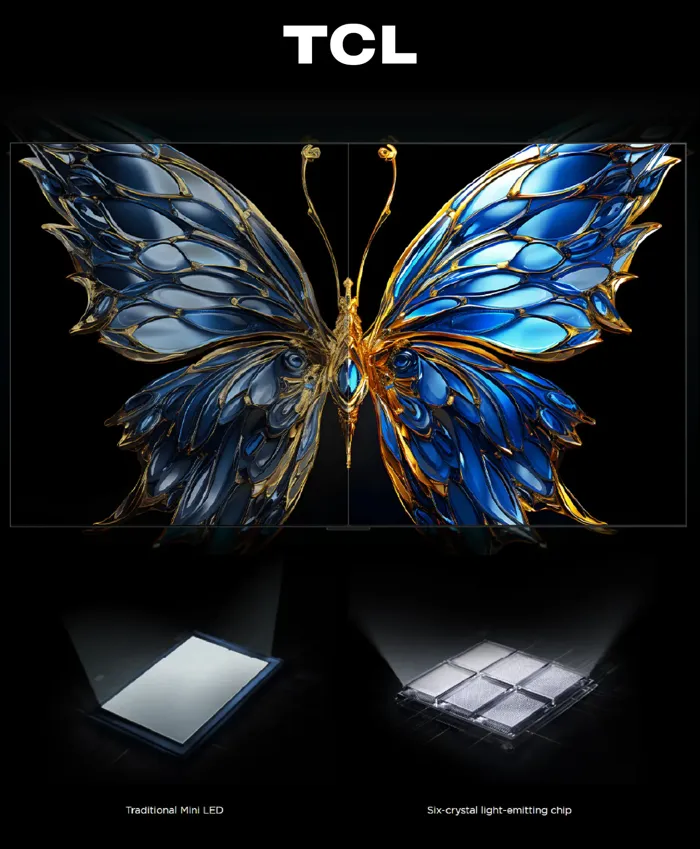
PHILIPS
Philips’ 7900 Series offers strong brightness for QLED but does not match TCL’s flagship levels. Other Philips models prioritize affordability over brightness.
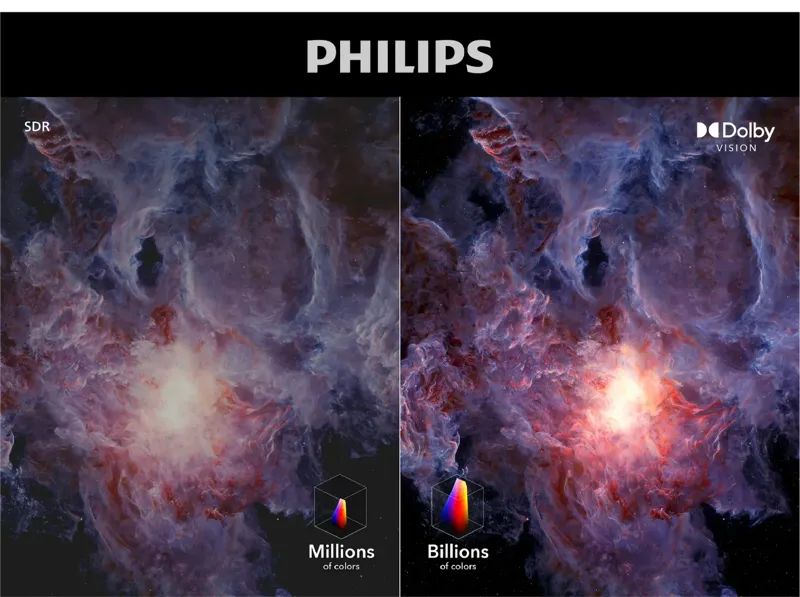
TCL’s brightness levels make it an excellent choice for rooms with abundant natural light, ensuring clear visibility without glare. Philips excels in creating a balance between brightness and contrast, making its models better suited for dim or ambient lighting conditions.
TCL leads in brightness, making it ideal for well-lit rooms and outdoor-friendly setups. Philips suits viewers prioritizing contrast and softer lighting environments, perfect for movie nights.
Smart Features
TCL’s advanced gaming features, such as Game Accelerator 240, make it a strong choice for gamers. Voice control and seamless app integration enhance the usability of models like the QM8 and QM7.
Philips adds Ambilight as a standout feature, enriching the viewing experience. Titan OS in select models complements standard smart functionality with unique, immersive enhancements. The visual synergy created by Ambilight enhances gaming, streaming, and traditional viewing alike.
Gamers and tech enthusiasts should opt for TCL, especially for fast response times and gaming-specific features. For an immersive and visually enriched experience, Philips is the better choice, particularly for casual and cinematic viewers.
Remote Control
Philips
Philips remotes stand out for their backlighting, ergonomic designs, and Ambilight controls, offering superior functionality for advanced features.
TCL
TCL provides minimalist remotes with dedicated app buttons and voice control, focusing on simplicity and ease of use.
Philips remotes cater to users who want more interactive features, while TCL remotes are built for straightforward functionality. Both brands ensure durability and responsiveness in their remote designs.
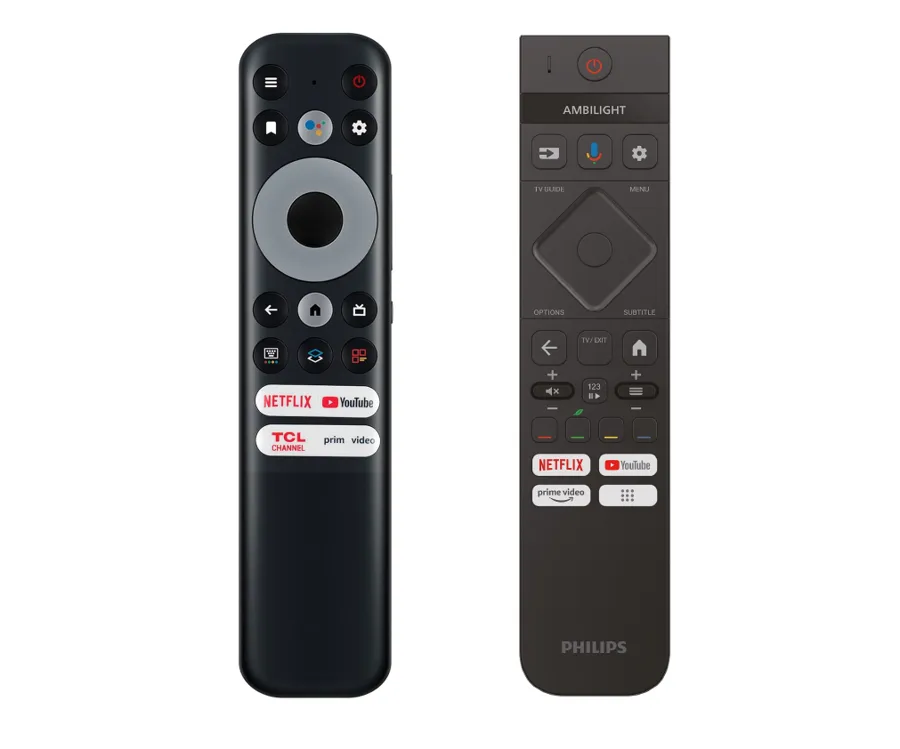
Philips offers more advanced remotes for feature-rich TVs and added convenience. TCL remotes are great for straightforward usability, making them ideal for users seeking simplicity.
Related Video
Conclusion
TCL and Philips cater to distinct preferences. TCL's QM8 and QM7 dominate in brightness and innovation, appealing to tech-savvy users and gamers. Philips, with its Ambilight technology and premium sound, is a compelling choice for design-conscious buyers seeking immersive entertainment. Both brands bring unique strengths to the table, making the choice largely dependent on individual needs. If cutting-edge technology and gaming features are your priority, TCL is the clear winner. On the other hand, for a visually immersive experience with elegant design elements, Philips is a strong contender. Your decision ultimately depends on whether you prioritize innovation and value or sophistication and design.

















